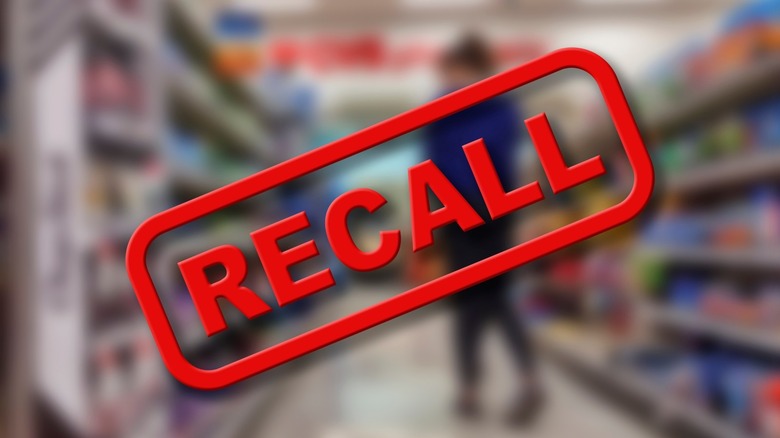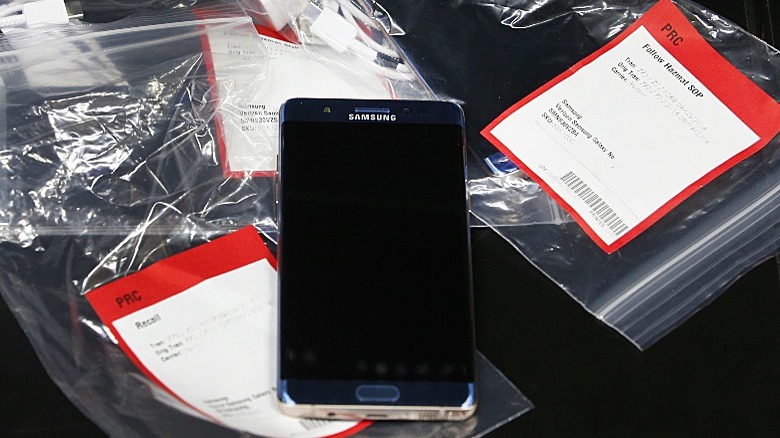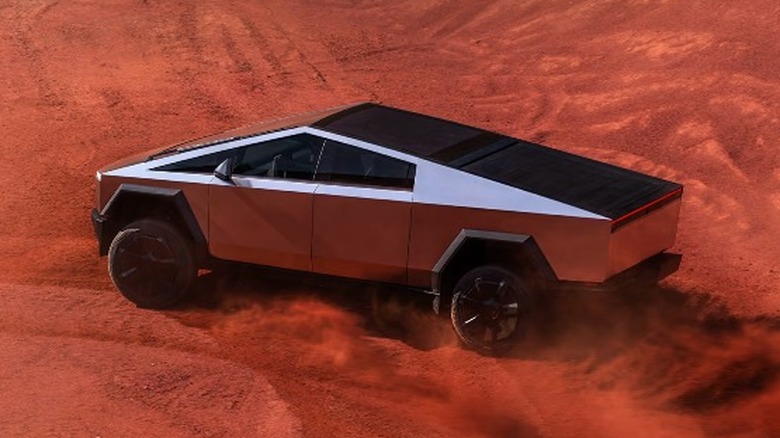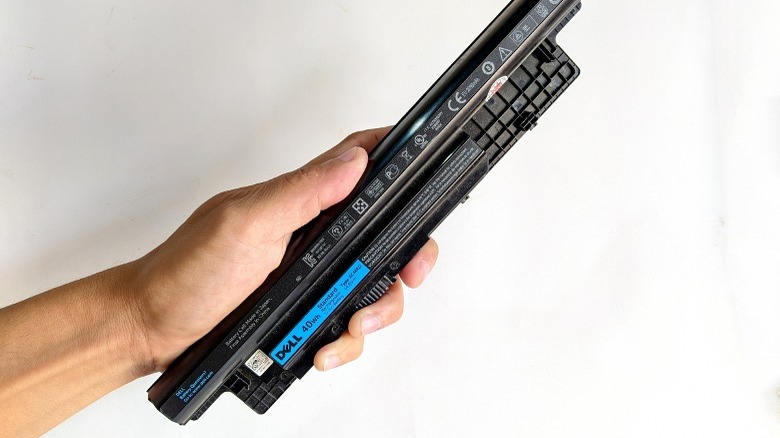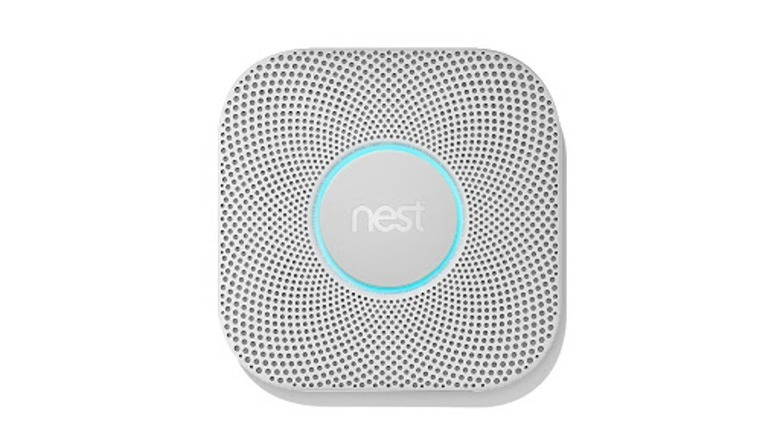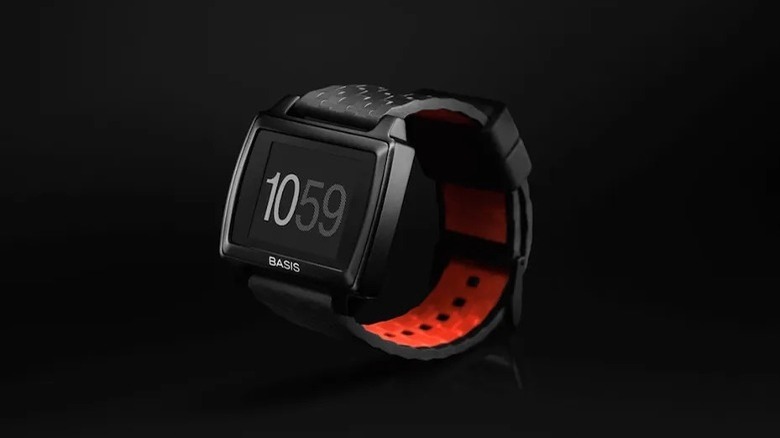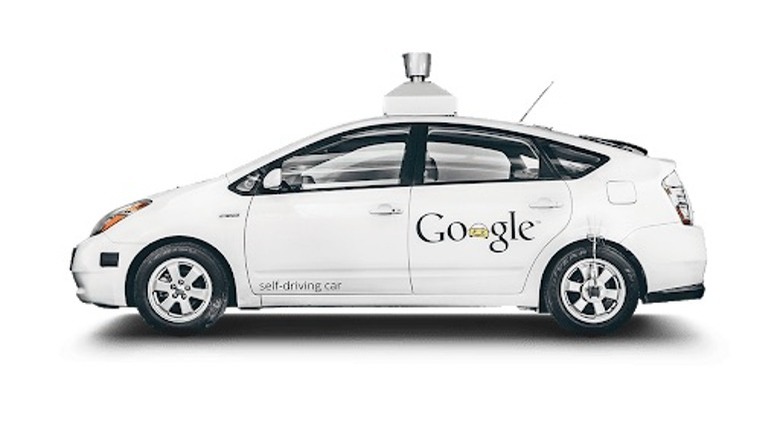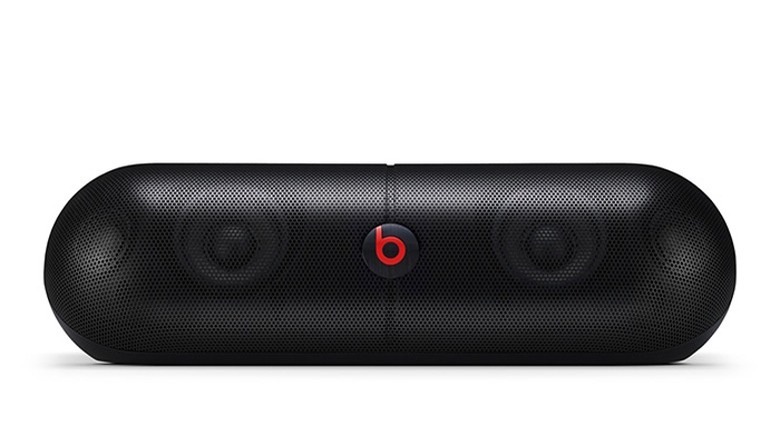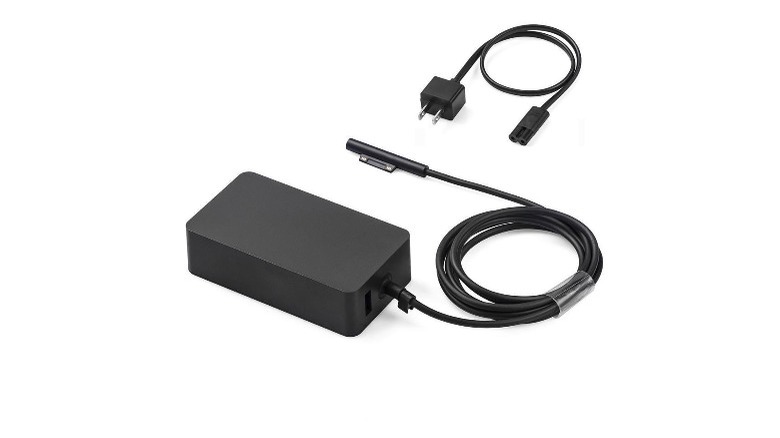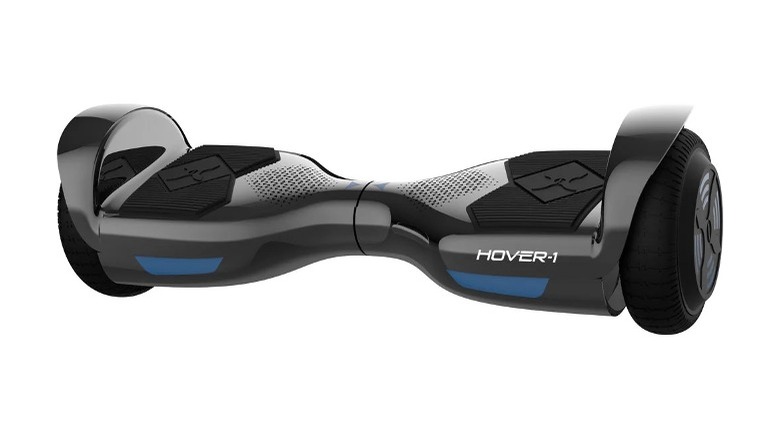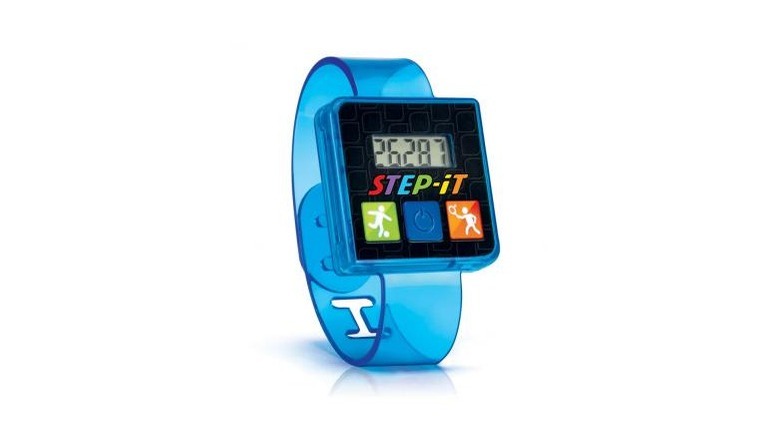The 10 Most Embarrassing Tech Recalls Of All Time
While new devices and gadgets are expected to undergo testing and meet safety standards before hitting the market, some issues don't surface until these items are already in users' hands. This kind of situation often is what prompts a recall.
Hundreds of recalls are issued each year. In fact, in 2023 alone, the United States recorded over 320 consumer-product recalls. This figure generally increases each year with consumers becoming more health-focused and regulations more complex.
Although an effective way to take responsibility, recalls are generally a huge sign that something has gone wrong and, thus, a red flag for many buyers. Usually, it's because the manufacturer has discovered significant product defects or user complaints that reveal a major safety hazard. And in some cases, it's just a subpar or problematic feature.
Regardless of the reason, recalls help control the quality of the tech we use. But they can also be humiliating for the companies involved. Out of the hundreds of recalls, here are 10 of the most embarrassing tech recalls of all time.
Samsung Galaxy Note 7
Barely a month after their release, tech giant Samsung was forced to recall millions of Galaxy Note 7 smartphones. When this phone was released, it embodied the innovative qualities of a Samsung device, with a new interface, an iris scanner, and a dual curved display, similar to the S7 Edge. It had a lot of positives — excellent battery life, a sleek build, and a great camera. It was expensive at the time, but we praised it as the best Android on the market.
Unfortunately, the Note 7 didn't stay very impressive for too long. After several reports of the battery overheating and exploding, in September, 2016 the company Samsung recalled the Galaxy Note 7, a move involving 2.5 million phones — 1 million in America alone.
Samsung added a software update that let users know whether their devices were prone to this issue and offered replacements. Samsung was able to achieve 96% returns within three months. Unfortunately, users of the replacement phones continued to report their devices catching fire. By October, 2016, this led to the Galaxy Note 7 being discontinued.
Tesla's CyberTruck
Tesla's electric pickup truck hit the road in November, 2023 with high expectations — and quite a bit of controversy. CEO Elon Musk called the Cybertruck Tesla's "best product," with promises of rugged durability and cool features, but its journey was quickly overshadowed by a string of recalls. By this September the Cybertruck had amassed five recalls in less than a year.
The September recall involved a problem with the rearview camera display, which often failed to display or took several seconds to show up after switching to reverse. According to the National Highway Traffic Safety Administration, this defect increased the risk of a crash and did not meet the standard set by the Federal Motor Vehicle Safety Standards. Over 27,000 trucks are estimated to have been affected by this problem.
Before this, the company had announced recalls for a too-small warning light font in January, faulty accelerator-pedal trim in April, and in June, a windshield-wiper-motor failure and loose trunk-bed trim. The first recall alone was estimated to have affected over 2 million units.
Dell laptop Sony batteries
In 2006, Dell had a massive laptop-battery recall after reports came in that the batteries were prone to overheating and could even catch fire. The company had sold about 22 million affected computers, and roughly 18% — over 4 million — needed replacement batteries.
The batteries, manufactured by Japanese multinational Sony, were used for Dell notebook computers and affected three of its models: the Precision, Inspiron, and Latitude. Lithium-ion batteries, while quite common, can overheat and catch fire if not appropriately designed. In this case, Dell identified impurities in the battery that could lead to a short circuit and, subsequently, overheating.
Devices produced from April 2004 to July 2006 were affected by this issue, resulting in a recall of over 4 million laptops — the largest recall in Dell's history, and in consumer electronics altogether at the time. The company's efforts to provide replacements were estimated to cost about $300 million, but the company must have been doing well overall: Dell said the recall wouldn't cause it any severe financial impact.
Google Nest Lab Smoke Detector
Google announced in January, 2014, that its was acquiring Nest Labs, a smart-appliance company, and Nest became Google's subsidiary brand for producing and selling home electronics. But only four months later, it had to issue a recall of smoke detectors sold between November 2013 and April 2014.
The issue with the device was that the alarm feature did not function properly when the Nest Wave feature was turned on. This feature let users turn off an alarm by waving a hand near it, and while that was easy to use, it also meant that activity going on around the smoke detector could inadvertently prevent it from alerting during a fire.
Although there were no reports of injury or damage as a result of this, the company halted the sale of the detectors to prevent any safety issues. Google offered repairs and refunds, and there was no need for a product exchange: Devices linked to a Nest account could access a software update that fixed the issue when connected to a Wi-Fi network. According to the Consumer Produce Safety Commission, about 440,000 smoke detectors were recalled.
Intel Basis Fitness Smart Watch
Today, Intel is known for producing computer components and PC solutions for individuals and businesses. But, years ago, it was also in the wearable tech business. The company delved into producing fitness watches and wearable heads-up displays between 2014 and 2015 after acquiring tech companies Basis and Recon. But Basis eventually cost Intel quite a bit more than its initial purchase price.
Reviews showed that the Basis Peak Smartwatch was a pretty decent fitness gadget upon its release. It was comfortable to wear, waterproof, and had a good, easy-to-read display. The problem, as the company later discovered, was its tendency to overheat and cause burns. Initially, when customers complained, the company directed its buyers to stop using the watch while they found a solution. However, it couldn't fix this problem, eventually issuing a safety recall.
Intel did not provide a replacement for customers; rather, it entirely stopped production of the Basis smartwatch and offered refunds. With the setback in its wearable-tech venture, the company had to lay off a major part of this division before eventually eliminating it entirely.
Waymo's Self-Driving Vehicles
Despite controversies around Alphabet's self-driving automaker, Waymo, the company has affirmed its commitment to providing more sustainable, safer, and accessible modes of modern transport. However, in May it proved some concerns right when one of its self-driving vehicles, a Robotaxi, hit a telephone pole in Phoenix.
This incident prompted the company to issue a recall the following month. Although no one was harmed by the crash, there were obvious concerns about how these autonomous machines can operate. Before this, the NHTSA had received reports about other collisions involving driverless vehicles. It had opened investigations to monitor self-driving systems from various companies, including Waymo, Zoox, Ford, and Tesla.
Some 672 cars were part of the Waymo recall. The company attributed the issue to software problems that prevented the cars from recognizing poles and similar objects. To remedy this, it improved its software and maps to make its cars better at navigating the road. This was Waymo's second-ever recall; the first, in February, involved a software issue that could keep its cars from predicting the movements of vehicles being towed.
Apple Beats Pill XL
The Beats Pill XL is yet another gadget that posed a risk of overheating and catching fire. This speaker was manufactured and sold under the Beats Electronics name starting in 2013, the year before Apple acquired the company. However, the iOS developer had to quickly urge customers to abandon these speakers when the problem was noticed in 2015. Luckily for Apple, the Beats Pill XL was the only product affected by the problem.
The recall involved about 233,000 speakers altogether in the U.S. and Canada. Before issuing it, Apple had received eight reports of fires, one of which involved a customer's burned finger. Rather than attempt to rectify the issue, Apple encouraged users to go for similar, safer options. It offered a refund, which included the cost of the speakers and some extra as compensation, totaling $325 for the $299.99 devices. Alternatively, users could receive Apple store credit.
Microsoft Surface Pro AC Power Cords
Easily identifiable by its detachable keyboard, the Surface Pro is Microsoft's blend of a laptop and a tablet — portable and functional. In early 2016, Microsoft realized that some of its Surface Pro AC power cords needed replacement. There were reports of a potential fire hazard caused by overheating, specifically when users twisted the cord, wound it up too tightly, or pinched it for a long period. Microsoft received 56 complaints about this, but luckily, no serious injuries were reported as a result of this defect.
The Surface Pro had, at the time, more than doubled its sales and appeared a promising venture for Microsoft. However, the company ended up recalling 2.25 million Surface Pro, Pro 2, and Pro 3 cords in the United States and about 190,000 in Canada that had been produced before March 15, 2015. The company provided replacements for users while instructing them to dispose of their faulty cords safely.
Hover 1 Helix Hoverboards
Although the concept of hoverboards had been depicted in movies as long ago as 1989's "Back to the Future Part II," they didn't actually hit the market (minus actual hovering) until 2013. On release, this piece of tech quickly became popular, and many companies decided to invest in it. But there were also several complaints about the self-balancing scooters, as they were described. In December 2023, the Hover-1 Helix joined the list of hoverboards recalled due to safety concerns.
This recall affected about 25,000 Hover-1 Helix hoverboards, specifically those in Camouflage and Galaxy color schemes. As with most other hoverboard recalls, the issue was a fire hazard caused by overheating. In this case, it was linked to lithium-ion batteries.
The company advised customers to stop using the product immediately and offered replacements to those affected. However, some property damage — estimated at around $25,000 — had already occurred in three fires. Additionally, five cases of health complaints like headaches, nausea, and coughing from smoke inhalation were reported.
McDonald's Fitness Tracker
As part of its efforts to redefine its image as a healthier brand and encourage kids to be more active, McDonald's thought to include a fitness tracker called "Step-It" in its Happy Meal– but not for long. What was intended to be a fun piece of tech for its younger customers quickly became a PR disaster.
The Step-It wasn't too impressive. It had a basic design, mostly plastic, and had just one function — counting steps, which it didn't do very accurately. However, it was cheap, bundled with a Happy Meal costing about $3. It also came in some fun colors and was meant to appeal to kids.
Not long after the Step-It was released in 2016, parents reported skin irritations and burns on their kids. The company got over 70 complaints regarding the wristbands and had to pull the watch from its stores soon after. A recall followed, involving more than 32 million trackers in the U.S. and Canada.
Although McDonald's claimed the product had met regulatory standards and undergone testing, the company apologized and provided replacement options for affected customers. Kids could choose a tube of yogurt, a toy, or apple slices as an alternative for their faulty watches.
